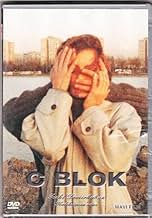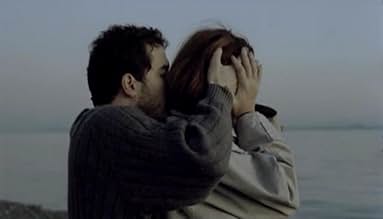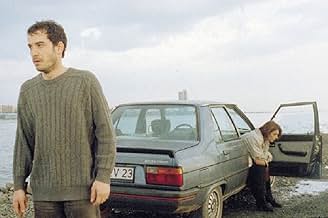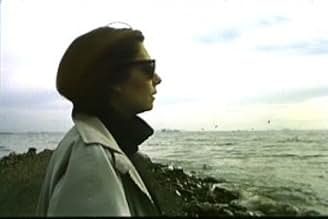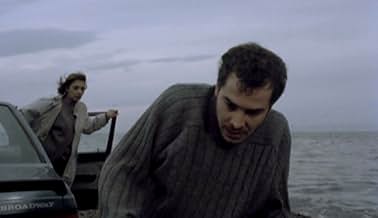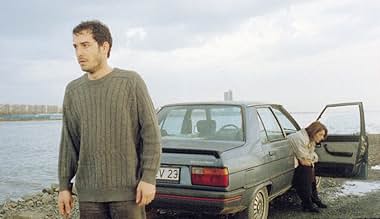IMDb RATING
6.1/10
3.6K
YOUR RATING
Tulay, a restless woman whose marriage is slowly disintegrating sets out to come to terms with various traumas while continually being watched by Halit, a resident in her apartment complex.Tulay, a restless woman whose marriage is slowly disintegrating sets out to come to terms with various traumas while continually being watched by Halit, a resident in her apartment complex.Tulay, a restless woman whose marriage is slowly disintegrating sets out to come to terms with various traumas while continually being watched by Halit, a resident in her apartment complex.
- Awards
- 9 wins
- Director
- Writer
- All cast & crew
- Production, box office & more at IMDbPro
Storyline
Did you know
- TriviaThe book Tülay shows to Fatos is Twilight's Child by Virginia C. Andrews.
- ConnectionsFeatured in Innocence (1997)
Featured review
The title C BLOK refers to a tower-block set in a modern development in İstanbul. Ostensibly a series of luxury apartments designed for the nouveaux riches as well as the bourgeoisie, in Zeki Demirkubuz's film they are equated with prisons. On the front door of the block small signs are posted saying "No Tradespeople" and "No Strangers." The security locks on the door prevent anyone from entering unless authorized.
For rich wife Tülay (Serap Aksoy) and janitor's sun Halit (Fikret Kuşkan) life in block is well nigh unbearable. This is signaled through a series of point-of-view shots stressing the size of the blocks stretching up to the sky and excluding any daylight. At one point director Zeki Demirkubuz photographs the blocks at an angle to suggest how they can affect the characters' mental state. A series of repeated shots - for example, of a satellite dish outside the blocks - shows how technology assumes much more importance in the public consciousness as compared to individual psychology.
Life in this environment is portrayed as aimless. The film is full of shots of the characters driving their cars aimlessly along endless main roads, the scenery flashing by. No one quite seems to know where they are going; driving is just a means of passing the time. For the most part Demirkubuz places his camera outside the cars, showing the characters driving behind their windshields, to emphasize the remoteness of their experiences.
Tülay and Halit try to discover various solutions to their problems. Tülay spends a lot of her time looking at the Bosphorus, its gray waters stretching into the horizon. At one point she dreams of the water carrying her away into a new life - or perhaps into oblivion. Halit spends much of his time observing Tülay, as well as Tülay's maid Aslı (Zuhal Gencer), as trying to control them through his glances. The only alternative he can find is to have brief sexual flings with both of them; but that brings little or no permanent satisfaction.
C BLOK is a complex film that deliberately plays with past, present and future. For most of the second half we learn that Tülay is telling the story of her life to her best friend Fatoş (Ülkü Duru), which is dramatized through flashback. Yet it seems that little has actually changed for her as Tülay and Fatoş are shown talking together, while the reflection of a New Year's party is shown at the right of the frame. Quite literally we are hearing the narrative told through a glass darkly, once again emphasizing Tülay's alienation from the world around her.
In the end Halit is condemned to an asylum and Tülay visits him. The sequence begins with a visual irony, as we see a shot of a bust of Atatürk in the background while Tülay gets out of her car. While founding the Republic Atatürk desired equality of opportunity for all; it's clear that this aim has not been fulfilled. Tülay goes into the asylum, and sits together with Halit. Although from quite different socio-economic backgrounds, they share the same hopeless plight.
BLOK C offers a bleak portrayal of life in the Republic of Turkey's largest city. Although made over twenty years ago, its depiction of life in the so-called "luxury" tower-blocks assumes even more significance today in light of the building explosion that has ruined most of the country's major urban centers.
For rich wife Tülay (Serap Aksoy) and janitor's sun Halit (Fikret Kuşkan) life in block is well nigh unbearable. This is signaled through a series of point-of-view shots stressing the size of the blocks stretching up to the sky and excluding any daylight. At one point director Zeki Demirkubuz photographs the blocks at an angle to suggest how they can affect the characters' mental state. A series of repeated shots - for example, of a satellite dish outside the blocks - shows how technology assumes much more importance in the public consciousness as compared to individual psychology.
Life in this environment is portrayed as aimless. The film is full of shots of the characters driving their cars aimlessly along endless main roads, the scenery flashing by. No one quite seems to know where they are going; driving is just a means of passing the time. For the most part Demirkubuz places his camera outside the cars, showing the characters driving behind their windshields, to emphasize the remoteness of their experiences.
Tülay and Halit try to discover various solutions to their problems. Tülay spends a lot of her time looking at the Bosphorus, its gray waters stretching into the horizon. At one point she dreams of the water carrying her away into a new life - or perhaps into oblivion. Halit spends much of his time observing Tülay, as well as Tülay's maid Aslı (Zuhal Gencer), as trying to control them through his glances. The only alternative he can find is to have brief sexual flings with both of them; but that brings little or no permanent satisfaction.
C BLOK is a complex film that deliberately plays with past, present and future. For most of the second half we learn that Tülay is telling the story of her life to her best friend Fatoş (Ülkü Duru), which is dramatized through flashback. Yet it seems that little has actually changed for her as Tülay and Fatoş are shown talking together, while the reflection of a New Year's party is shown at the right of the frame. Quite literally we are hearing the narrative told through a glass darkly, once again emphasizing Tülay's alienation from the world around her.
In the end Halit is condemned to an asylum and Tülay visits him. The sequence begins with a visual irony, as we see a shot of a bust of Atatürk in the background while Tülay gets out of her car. While founding the Republic Atatürk desired equality of opportunity for all; it's clear that this aim has not been fulfilled. Tülay goes into the asylum, and sits together with Halit. Although from quite different socio-economic backgrounds, they share the same hopeless plight.
BLOK C offers a bleak portrayal of life in the Republic of Turkey's largest city. Although made over twenty years ago, its depiction of life in the so-called "luxury" tower-blocks assumes even more significance today in light of the building explosion that has ruined most of the country's major urban centers.
- l_rawjalaurence
- Oct 2, 2015
- Permalink
- How long is Block C?Powered by Alexa
Details
- Release date
- Country of origin
- Official site
- Language
- Also known as
- C Blok
- Production company
- See more company credits at IMDbPro
- Runtime1 hour 32 minutes
- Color
- Aspect ratio
- 1.66 : 1
Contribute to this page
Suggest an edit or add missing content


